
 |
|
Lin Chien-chung says his company's tea was a favorite with Madame Soong Meiling |
Drinking Taiwan tea has become a "culture" in the Chinese mainland, according to Lin Chien-chung, general manager of Chuan-Shang Tea.
Lin was among 10 Taiwan tea companies represented at the Beijing International Tea Expo in mid-June. They were part of a tea trade association from the island, which has more than 30 members.
"The most famous Taiwan specialties nowadays for people on the Chinese mainland are Taiwan oolong tea and pineapple pastry," says Lin.
The history of Lin's company dates back more than 100 years. He says they were the first to make original leaf teas and traditional Chinese teas such as jasmine tea in Taiwan.
"We were located on Hengshan Lu, and Soong Mei-ling used to buy jasmine teas from us," he says.
Taiwan teas have a good reputation among tea lovers in the Chinese mainland, who think the teas have a full, round taste, a flowery aroma, and made with high-level techniques.
Taiwan's most popular teas in the mainland are Alishan, Lishan, and Dongding oolong teas.
Lin is based in Chengdu. He was at the expo to locate more wholesale agents, and looking for locations for new stores.
"Beijing's market is becoming bigger and bigger," he says. "We are very confident, especially in terms of product safety."
Lin Risheng, founder of Shengxiang Tea Store, has attended Beijing's tea expo for the past five years. He put up a specialized counter for selling dongfang meiren, or "south beauty", a highly fermented oolong tea unique to Taiwan.
Lin Risheng said the name was given by Queen Victoria when the tea was sold to Britain in 1880.
The tea resembles black tea in its deep color, but has a honeyed aroma. That is due to the fact the leaves are bitten by a small green leaf cicada before harvested.
Lin says Chinese northerners find the tea to be natural and special. He brought more than 100 cans, and was confident of sales because he says they always sell out.
The teas he prepared are priced at 300 yuan ($47) a can of 50 grams, or 3,000 yuan for 500 grams.
He said that is not difficult for consumers here to accept, because there are plenty of high-end customers here. "There are even teas priced at 1,000 yuan per 50 grams," he says.
Sales are also good for Lin Tongmiao, representing Da Chian Tea Taiwan, a big company with its own 20-hectare tea farm and tea factories.
"People in the Chinese mainland still don't know Taiwan teas very well. So it is possible they could end up buying fake Taiwan teas," he says. "I'm here to show them what real Taiwan teas taste like."
His company produces high-mountain oolong and a black tea made from high-mountain tea shrubs. He said he found high-mountain oolong and "south beauty" best received here.
He thinks a common fallacy in the Chinese mainland is over-packaging, which he considers "an insult" to tea.
"I'm probing the market here, and introducing the genuine taste of Taiwan," he says.
"Next time I'm here, I will have adjusted the packaging for my teas. I'll also stage a tea ceremony performance."
yejun@chinadaily.com.cn

2013 Chinese New Year |

Hidden dragons, crouching tigers |
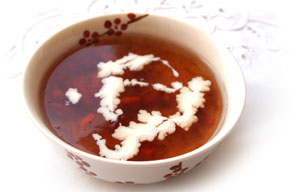
Soap beans, silver ears and peach gum |

Special:Winter Solstice |
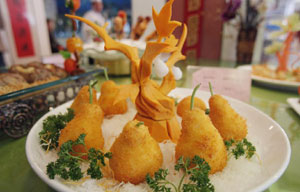
'Potato festival' kicks off in Shandong |
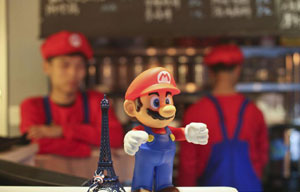
Mario themed restaurant opens in Tianjin |
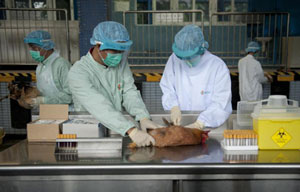
HK carries out avian influenza tests on imported chicken |
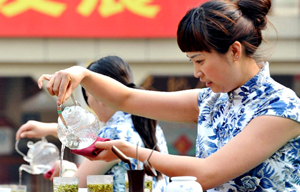
2013 China Tea Conference kicks off in Zhejiang |